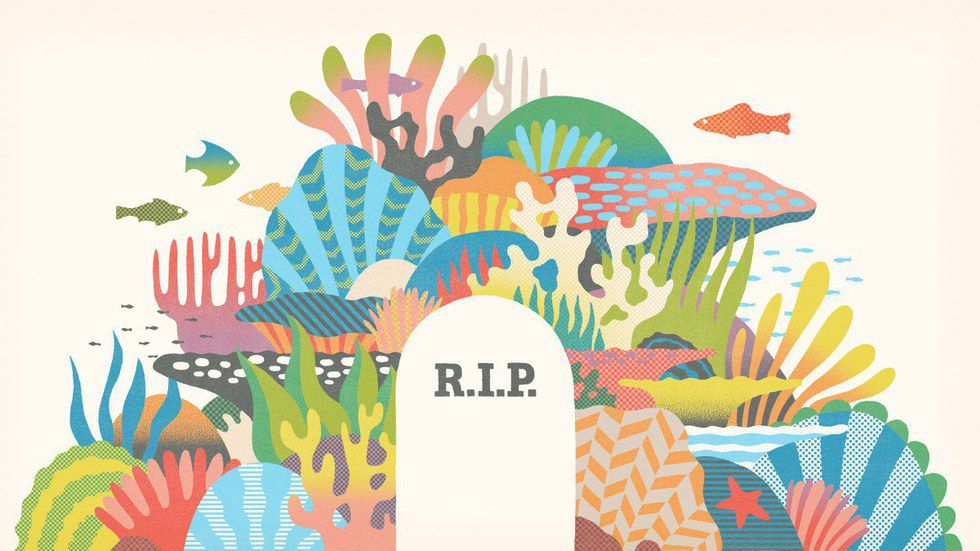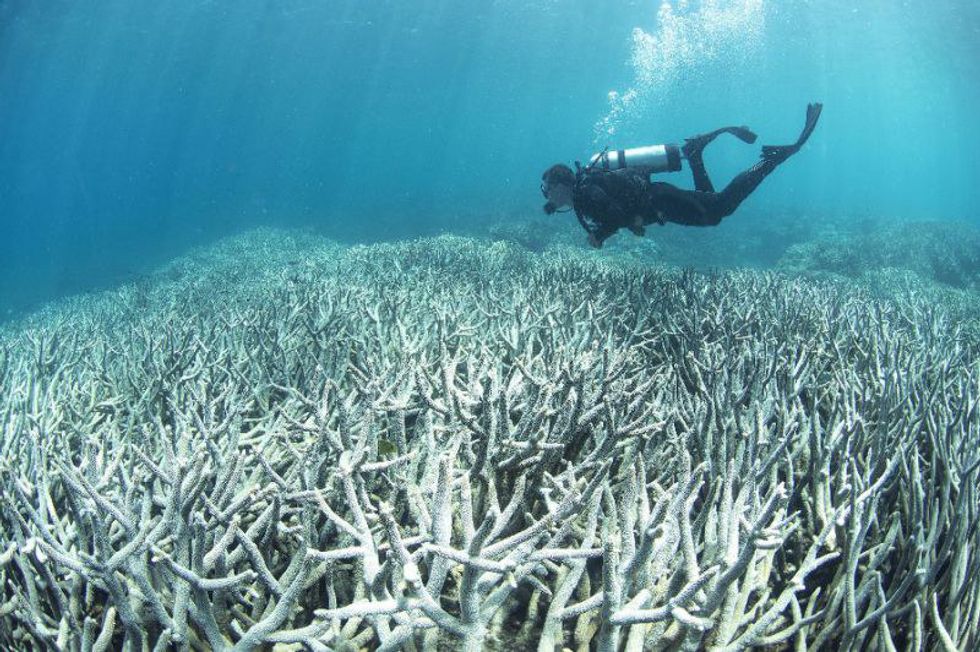As I am sure many of you saw articles floating all around social media this past week stating "The Great Barrier Reef Is Dead". When I saw these articles floating all over social media, I had a heart attack! Could I really not scuba dive the reef?? Was it all over? I am planning to study abroad in Australia in a year and could not believe that when I am able to go there, that the reef would be dead! I am here to bring you good news, the reef is not dead, at least not entirely. Only around 20% of the reef is dead but the rest of the reef is dying.
Outside Magazine published an obituary for the Great Barrier Reef earlier this week. The article discussed the life of the reef, its active membership in the ecological community, its worldwide fame and the coral bleaching that has led to its deteriorating health. “The Great Barrier Reef of Australia passed away in 2016 after a long illness. It was 25 million years old,” read the article.
The obituary was met with horror, both by scientists and social media users alike (including myself!). Russell Brainard, chief of the Coral Reef Ecosystem Program at NOAA’s Pacific Islands Fisheries Science Center, told HuffPost that he believes the article was highlighting the urgency of the situation, but that those who don’t have any context “are going to take it at face value that the Great Barrier Reef is dead.”
Many people on social media are indeed taking it at face value. Twitter has been grieving the loss of the reef and urging followers to pay serious attention to the consequences. Many are spreading false information entirely. Rowan Jacobsen, the writer of the obituary, is a food and environmental writer, not a scientist. But the article has led some outside people to claim that scientists have declared the reef officially dead, further spreading the exaggeration and panic among social media.
There’s no denying that the Great Barrier Reef is in serious trouble. According to a report by the ARC Centre of Excellence for Coral Reef Studies, 93% of the reef is affected by bleaching, putting the reef in danger of extinction. Bleaching occurs when coral is put under extreme stress by changes in conditions like temperature, light, or nutrients. In these conditions, they lose the symbiotic algae from their tissues, causing them to turn white. (Pictured Below)
Scientists are increasingly worried that over-exaggerating the state of the reef will promote the idea that it is past the point of recovery. Professor John Pandolfi from the ARC Centre at the University of Queensland has expressed hope. “It is critically important now to bolster the resilience of the reef, and to maximize its natural capacity to recover.” But the effects are serious and possibly permanent. “The reef is no longer as resilient as it once was, and it’s struggling to cope with three bleaching events in just 18 years,” he said.
The reef is not dead, but it is dying. We are the generation that is able to change everything. We can change our habits, eating, water usage, driving too often and promoting the health of our ecosystems. Don't worry the article may have scared everyone, but if we don't start taking care of our planet then we will face the consequences. Let's all be a little greener and conscientious of how our daily life can affect the planet.























